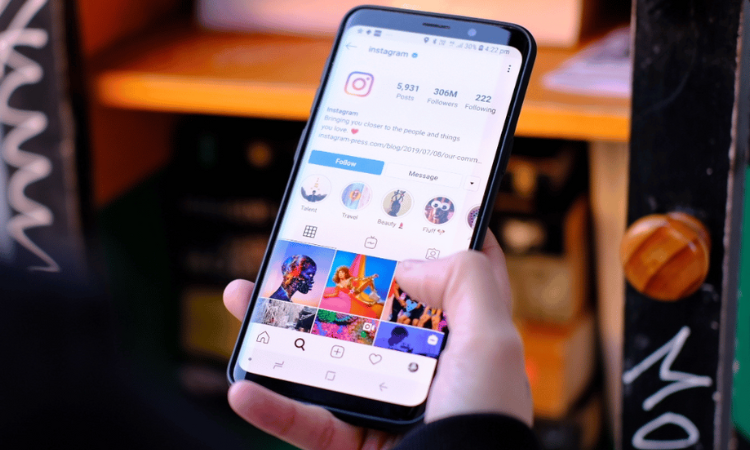

A fitness coach is someone who creates sustainable programs for their clients. Their approach is holistic, which means they’re not just focused on providing workout routines and gym schedules – fitness coaches will motivate and guide their clients to make lifestyle changes and improve themselves for the better. Many fitness coaches help with different areas of a client’s life, such as exercise, nutrition, and even decision-making.

Although they may seem similar at first glance, fitness coaches and personal trainers offer different ways of managing fitness and the overall happiness of their clients.
The #1 to make money online with TikTok Search (FREE TRAINING)

Deciding whether to become an online fitness coach or a personal trainer is specific to you and your own goals. Are you someone who would prefer to work from the comfort of your home, or would you rather be in the middle of the action? Here are some advantages of deciding to be an online fitness instructor:
However, as with everything, there are a few disadvantages to choosing fitness coaching over personal training:
Choosing the right path for you involves weighing up the advantages and disadvantages of each.

Fitness coaches use online tools to interact with their clients. This will include messaging apps so they can contact their clients directly one-to-one, scheduling tools so they can sync calendars and schedule meetings, video platforms such as Zoom or Teams to talk face-to-face, and even apps and tools to track their clients’ progress.
Many fitness coaches use all-in-one platforms such as Teach.io to interact with and manage their clients. This means they don’t have to jump from app to app – all the tools they need are in one place.
According to GlassDoor, online fitness coaches make anywhere from $72K to $135K a year. The average yearly online fitness coach salary is $120,527.
However, keep in mind that many different factors influence income levels, such as your specialization, experience level, and the size of your client list. Although your salary may be less when you’re just starting out and building up your client base, your brand (and income) can quickly grow.
Furthermore, online fitness coaches can tap into many different revenue streams, including:
If you’re looking for clients online, you don’t need specific qualifications to start your fitness coaching career. However, formal training and certifications will help you attract a client base, especially if you’re starting from scratch. Consider taking fitness, sports science, and nutrition courses to enhance your credibility. Ensure clients are aware of these through your website or during consultations.
Not sure where to start? Here are our most recommended certifications that will help you build your credibility as a fitness coach:
The fitness industry is always in a constant process of change, which means even seasoned professionals should take courses to update their knowledge and skills.

The following fitness coaches have taken their passion for fitness and transformed it into a successful career using various digital marketing strategies. We’ve dived into some of their best-performing strategies, which you can implement to grow your own business.
Since 2008, Kayla Itsines’ goal has been to empower women to take control of their fitness, helping them feel strong and confident. A true fitness coach, she focuses on helping women work around their busy lifestyles, as opposed to sacrificing them to get fit. She’s recognized as one of the most influential fitness coaches in the world.
Find her on Instagram and Twitter.
Jeff Cavaliere is a huge name in the fitness industry with a well-respected background. He served as the Head Physical Therapist and Assistant Strength Coach for the New York Mets during the National League East Championship in 2006, 2007, and 2008. Jeff has the education to back his skills up, too, having obtained a Masters Degree in Physical Therapy and a Bachelor of Science in Physioneurobiology / Premedicine from the University of Connecticut.
He used all the knowledge and skills he gained to launch his YouTube channel, Athlean-X, where he provides fitness tips and demonstrations, turning viewers into paying customers.
Follow him on Instagram or check out his YouTube channel.
Cassey Ho, otherwise known as Blogilates, is the creator of POP Pilates, a community that trains other inspiring instructors. She started her fitness coaching career on YouTube, where she provides a range of tips and tricks, such as “Stretch + De-Stress.” She is now a fully-fledged entrepreneur who designs and markets her own line of fitness apparel.
Find her on YouTube and Instagram.
Although Joe Wicks started with a small personal training business, he’s now expanded his reach to huge heights through social media and his range of recipe books. His 4 million social media followers agree that his methods are life-changing. He’s the perfect blueprint for anyone inspiring to be an online fitness and nutrition coach.
Follow Joe on Instagram and YouTube.
Simeon Panda is one of the most influential fitness professionals worldwide, but it wasn’t always that way. He started by sharing his training tips and nutrition regimen online.
Keep up to date with Simeon Panda on Instagram and Twitter.
Becoming an online fitness coach requires dedication, motivation, and planning. A fitness coach business doesn’t appear overnight. To succeed, you must identify your target audience, set up your business structure, and learn how to market your services. This might seem overwhelming at first, but following our in-depth guide will help you learn how to start an online fitness coaching business.
Before you set up your online fitness coaching business, it’s important to outline your skills and strengths, as this will help you decide which services to offer.
The examples of successful fitness coaches above all have one thing in common: they focus on specific areas. Is there a specific skill or area in which you excel? Or is there anything you particularly enjoy? Whether you love a yoga class or believe Pilates is your thing, identifying these areas can help differentiate you in the online marketplace.
Conduct market research to understand the needs of your potential clients. Remember, your services should solve a problem. Are your clients looking to lose weight, improve their mental health, or calm anxiety? Determine your audience demographics. Figure out their age, fitness level, interests, and gender.
To find your ideal audience, research other fitness coaches who are offering similar services to you. Check out their comment sections and make detailed profiles of the type of people who are following and engaging. For example, Kayla Itsines’ audience is mostly made up of women.
To become a successful online coach, you need to differentiate yourself from your competitors. Figure out what makes you unique, whether it’s the services you offer or who you offer it to. This will help you design unique programs to set you apart from the vast pool of fitness coaches and personal trainers.
The #1 to make money online with TikTok Search (FREE TRAINING)

Find out which certifications are right for you. They should not only be well-respected and trusted, but they should also align with the services you offer.
In addition to taking courses that align with your services, consider taking other courses to broaden your expertise, which will help you attract more clients. Consider courses in nutrition, wellness, business management, and even marketing.
It’s not enough to complete one course and call it a day. The most successful training coaches stay up to date with industry developments. Make sure you’re aware of new research, as this will help you adapt your methods and offer your clients the best service possible.
Before you start coaching, you need to register your business. Even though you’re operating online, it’s important to look into taxes and insurance, ensuring you have everything you need to get set up.
Developing a detailed and coherent business plan is also key to success in the long term. Highlight which services you plan to offer (or products, such as eBooks, courses, or even apparel), your pricing structure, your marketing strategy, and financial projections.
To grow a successful online fitness coach program, you need to work out how your business is going to make a profit. Decide whether you plan to:
You may even choose to offer more than one. For example, you may charge clients per session but also offer subscription packages where they can save money, enticing them to commit long-term.

You need a professional-looking website that highlights your services, testimonials, credentials, and contact information. You can also include links to social media, a blog, and your own personal story to help potential clients get to know you. This will help to build trust and convince clients to choose you over your competitors.
Create a social media presence that showcases you as a person. With social media, you’re not just looking to advertise your business; you should also be building a brand, especially if you’re working with clients one-on-one. Focus on building a thriving Instagram or Twitter community, as this will help you form connections with potential clients.
Plan your content in advance. Schedule regular posts, blog posts and articles, videos, promotional offers, and more. This will help you optimize your workflow, adjust your content strategy going forward, and free up your time. With everything scheduled and ready to go, you can focus on providing the best service possible for your clients.
To be a successful online fitness coach, you need to be able to entice potential clients with engaging content and programs. Any information you share with your audience should be easy to understand, accurate, and up-to-date.
Here are a few examples you could try:
It’s not enough to have created a range of expert services. You need to learn how to market them properly. Here’s how:
According to a Forrester report, 60% of businesses own a branded online community, and with 30% of their revenue being influenced by online communities, it’s not hard to see why.
This becomes even more important when offering fitness or self-improvement services, as a community will help your clients stay motivated and feel like they’re part of something bigger.
A range of free community platforms, such as Facebook Groups and Discord, are available for you to build your own community. However, if you’re serious about building a successful online fitness coaching business, paid, professional platforms are the way to go.
Platforms such as Teach.io provide the perfect space for this type of community, as they are built specifically for group coaching. You can use their course builder to create courses and their event manager to schedule meetings. You can also schedule live events and message clients one-on-one within the app. Try Teach’s 14-day free trial today to get started.
Keep your community engaged with community-building activities, such as icebreaker activities, Q&As, games, live sessions, and group discussions. This will help bring your community together and create a lively space.
Create a space within your community where clients and community members can share feedback and thoughts, ask for advice, and provide support to each other. This use of this community flywheel framework will create a welcoming environment built to motivate each other and inspire retention.
Setting up is only part of becoming an online fitness coach. Once your clients have started to pour in, it’s important to nurture client relationships. This will improve retention rates, make clients feel valued, and inspire positive testimonials and reviews. Here’s how:
Optimizing your fitness coaching business will help you achieve success quickly and easily. Here are a few tips to try:
Adapt your business strategies based on the feedback you receive directly from clients or the data you get back from tracking your performance. If one strategy isn’t working, shelve it and try something new. If something is working, consider how to optimize it. This will help you improve your fitness coaching brand over time, creating a business you and your clients can be proud of.
With such a vast and saturated market, becoming an online fitness coach might be daunting. However, with the steps we’ve outlined above, you can take this dream and turn it into a reality. Just like the clients you want to attract, you have to be motivated, dedicated, and willing to adapt.
Community platforms such as Teach.io can help you create a thriving online coaching business. Start their 14-day free trial.





